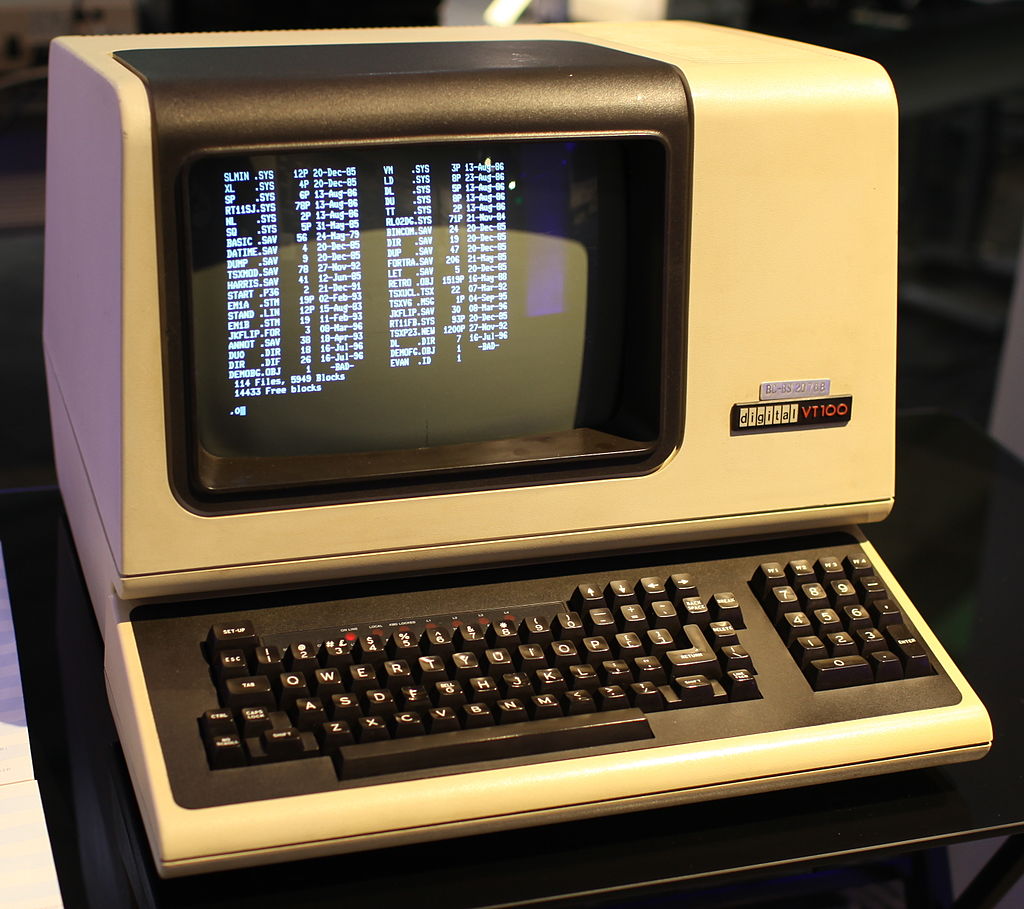Arthur Besse
cultural reviewer and dabbler in stylistic premonitions
- 630 Posts
- 924 Comments
they aren’t the only animal that does it: https://en.wikipedia.org/wiki/Kleptoplasty#Animals

 31·5 days ago
31·5 days agoLets Enhance is a pretty great supercut, but nothing beats the original Blade Runner scene.
enhance 224 to 176
enhance, stop
move in, stop
pull out, track right, stop
center and pull back, stop
track 45 right, stop
center and stop
enhance 34 to 36
pan right and pull back, stop
enhance 34 to 46
pull back, wait a minute, go right, stop
enhance 57 to 19
track 45 left, stop
enhance 15 to 23
give me a hardcopy right there
deleted by creator
deleted by creator
deleted by creator

 4·6 days ago
4·6 days agoThe canonical documentation is https://www.kernel.org/doc/Documentation/filesystems/proc.rst (ctrl-f
oom) but if you search a bit you’ll find various guides that might be easier to digest.https://www.baeldung.com/linux/memory-overcommitment-oom-killer looks like an informative recent article on the subject, and reminds me that my knowledge is a bit outdated. (TIL about the choom(1) command which was added to util-linux in 2018 as an alternative to manipulating things in
/procdirectly…)https://dev.to/rrampage/surviving-the-linux-oom-killer-2ki9 from 2018 might also be worth reading.
How to make your adjustments persist for a given desktop application is left as an exercise to the reader :)

 31·6 days ago
31·6 days agoI’m not sure what this comic is trying to say but in my recent experience a single misbehaving website can still consume all available swap at which point Linux will sometimes completely lock up for many minutes before the out-of-memory killer decides what to kill - and then sometimes it still kills the desktop environment instead of the browser.
(I do know how to use
oom_adj; I’m talking about the default configuration on popular desktop distros.)
404 Media neglected to link to her website, which is https://ada-ada-ada.art/
Eternal reminder that KillEmAll Harris was part of the Jerry Brown administration immortalized in California Uber Alles.
Almost. Same Jerry Brown, but a different administration and different century.
Harris was only 14 years old when California Uber Alles was released.
does your resume include a sokoban clone?

 5·7 days ago
5·7 days agopresumably they started with a base fine of $20 and simply multiplied it by 1000 for each of their time zones
see also: the mini version


 3·8 days ago
3·8 days agothat flag is upside down 🤘
keep it steady? did you neglect to install the shock absorbing plate?

I think it depends which side of the debate one is on?
$ systemd-analyze calendar tomorrow Failed to parse calendar specification 'tomorrow': Invalid argument Hint: this expression is a valid timestamp. Use 'systemd-analyze timestamp "tomorrow"' instead? $ systemd-analyze timestamp tuesday Failed to parse "tuesday": Invalid argument Hint: this expression is a valid calendar specification. Use 'systemd-analyze calendar "tuesday"' instead?ಠ_ಠ
$ for day in Mon Tue Wed Thu Fri Sat Sun; do TZ=UTC systemd-analyze calendar "$day 02-29"|tail -2; done Next elapse: Mon 2044-02-29 00:00:00 UTC From now: 19 years 4 months left Next elapse: Tue 2028-02-29 00:00:00 UTC From now: 3 years 4 months left Next elapse: Wed 2040-02-29 00:00:00 UTC From now: 15 years 4 months left Next elapse: Thu 2052-02-29 00:00:00 UTC From now: 27 years 4 months left Next elapse: Fri 2036-02-29 00:00:00 UTC From now: 11 years 4 months left Next elapse: Sat 2048-02-29 00:00:00 UTC From now: 23 years 4 months left Next elapse: Sun 2032-02-29 00:00:00 UTC From now: 7 years 4 months left
(It checks out.)
Surprisingly its calendar specification parser actually allows for 31 days in every month:
$ TZ=UTC systemd-analyze calendar '02-29' && echo OK || echo not OK Original form: 02-29 Normalized form: *-02-29 00:00:00 Next elapse: Tue 2028-02-29 00:00:00 UTC From now: 3 years 4 months left OK $ TZ=UTC systemd-analyze calendar '02-30' && echo OK || echo not OK Original form: 02-30 Normalized form: *-02-30 00:00:00 Next elapse: never OK $ TZ=UTC systemd-analyze calendar '02-31' && echo OK || echo not OK Original form: 02-31 Normalized form: *-02-31 00:00:00 Next elapse: never OK $ TZ=UTC systemd-analyze calendar '02-32' && echo OK || echo not OK Failed to parse calendar specification '02-32': Invalid argument not OK

 2·10 days ago
2·10 days agoFunny that blog calls it a “failed attempt at a backdoor” while neglecting to mention that the grsec post (which it does link to and acknowledges is the source of the story) had been updated months prior to explicitly refute that characterization:
5/22/2020 Update: This kind of update should not have been necessary, but due to irresponsible journalists and the nature of social media, it is important to make some things perfectly clear:
Nowhere did we claim this was anything more than a trivially exploitable vulnerability. It is not a backdoor or an attempted backdoor, the term does not appear elsewhere in this blog at all; any suggestion of the sort was fabricated by irresponsible journalists who did not contact us and do not speak for us.
There is no chance this code would have passed review and be merged. No one can push or force code upstream.
This code is not characteristic of the quality of other code contributed upstream by Huawei. Contrary to baseless assertions from some journalists, this is not Huawei’s first attempt at contributing to the kernel, in fact they’ve been a frequent contributor for some time.

 71·11 days ago
71·11 days agoWasn’t Huawei trying to put a Backdoor into linux?
as far as i know, that has not happened.
what makes you think it did?






























RedHat was a major military contractor with job postings like this current one [archive] long before they were bought by another older and larger military contractor.
https://en.wikipedia.org/wiki/IBM_and_World_War_II
https://web.archive.org/web/20240530005438/https://www.redhat.com/en/resources/israeli-defense-forces-case-study (original is 404 for some reason)